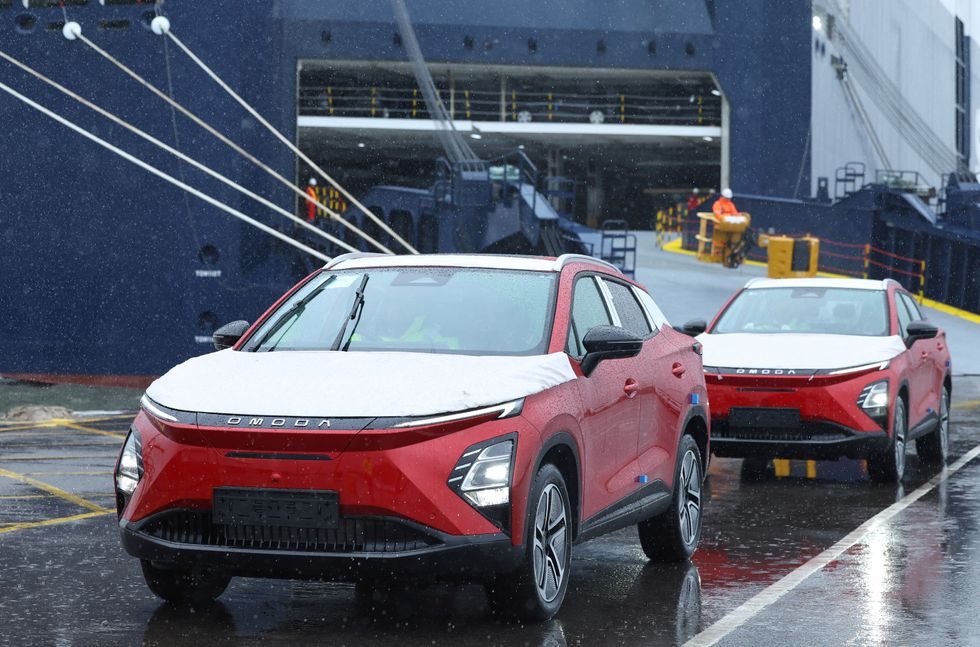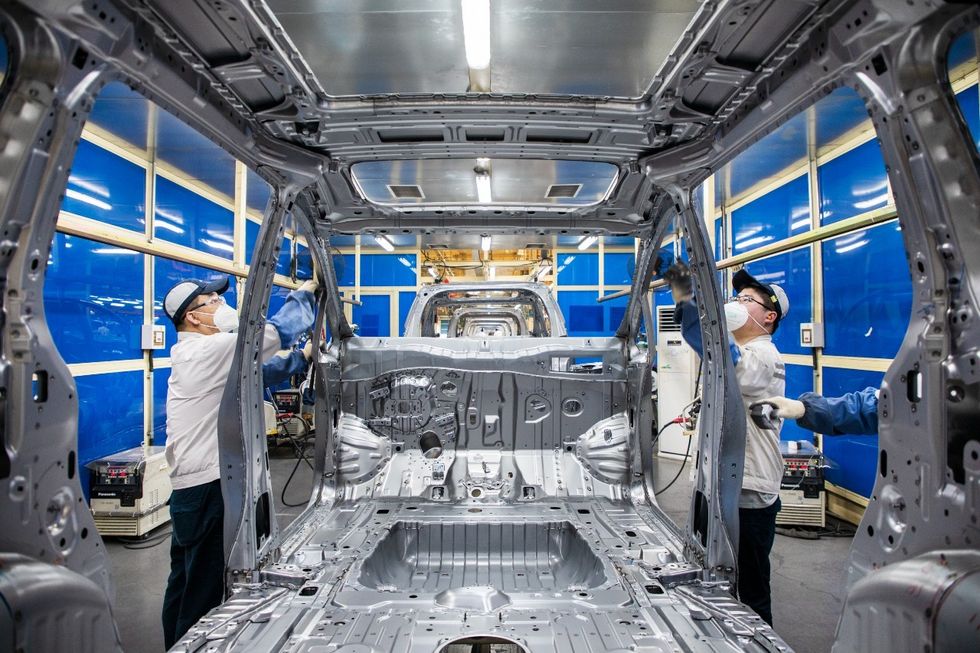The White House has announced new measures to crack down on software used in vehicles, effectively banning Chinese vehicles from American roads due to national security concerns.
The Biden-Harris Administration is taking action to protect the United States from potential threats associated with connected vehicle technologies from countries of concern, particularly China and Russia.
President Biden has directed the Department of Commerce to issue a notice of proposed rulemaking that would prohibit the sale or import of connected vehicles incorporating certain technologies from these nations.
This move follows a process initiated in February 2024 and incorporates public feedback submitted in response to an advance notice issued on March 1, 2024.
Do you have a story you’d like to share? Get in touch by emailing[email protected]

Electric vehicles from China have become more popular in recent months
REUTERS
The Biden-Harris Administration argues that while connected vehicles offer benefits such as improved safety and navigation assistance, they also pose new and growing threats to national security.
The Department of Commerce’s proposed rule would prohibit the import or sale of certain connected vehicle systems designed, developed, manufactured, or supplied by entities with ties to China or Russia.
This includes vehicle connectivity systems (VCS) and automated driving systems (ADS) while covering systems connecting vehicles to the outside world via Bluetooth, satellite, and Wi-Fi modules.
Restrictions would apply to imports or sales of connected vehicles using VCS and ADS software, and imports of VCS hardware equipment.
Despite the sweeping measures, the Department is also proposing procedures for exemptions on an exceptional basis to minimise disruption to industry, particularly for small producers.
According to Reuters, White House economic advisor Lael Brainard has prepared remarks for the Detroit Economic Club, which will state: “China is flooding global markets with a wave of auto exports at a time when they are experiencing overcapacity.
“We have seen this playbook before in the China shock of the early 2000s that harmed our manufacturing communities.
“The Administration is determined to avoid a second China shock, which means putting safeguards in place before a flood of underpriced Chinese autos undercuts the ability of the US auto sector to compete on the global stage.”
Software bans are set to take effect for Model Year 2027 vehicles, whilst hardware restrictions will come into force for Model Year 2030, or January 1, 2029, for units without a model year.
The Department of Commerce is seeking input from stakeholders as it develops the final rule, with the consultation aiming to ensure actions protect US national security.
The Biden-Harris Administration has also emphasised its commitment to addressing threats posed by foreign automobiles and supply chains comprehensively.
In May, President Biden increased tariffs on Chinese electric vehicles from 25 per cent to 100 per cent under Section 301.
LATEST DEVELOPMENTS:

The US announced higher tariffs for Chinese vehicle manufacturers earlier this year
GETTY
Additionally, the Inflation Reduction Act tied eligibility for the $7,500 (£5,628) EV tax credit to final assembly in North America and sourcing key battery components from the United States or trade partners.
By tying EV tax credits to North American production and sourcing from allied nations, the administration seeks to incentivise local manufacturing and secure critical supply chains.